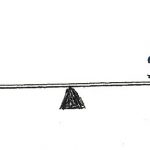Why do the Rosetti people of Italy live so long? Why are Indians and Jewish people so smart? Why is Suya sold mainly at night and majorly by Hausas? In Nigeria, aren’t Yoruba’s always the most diplomatic and socially intelligent? When have you seen a healthy Igbo man begging on the streets than hustle or a Fulani man you can’t bank on his words and even threat?

Let’s explore an interesting case study of the Nnewi people, why are they so successful? Is it something about where they are from? Absolutely yes. It’s about their apprenticeship model, their culture and the ability to support each other to the top. It’s something about their thoughts and dispositions that fuel their drive. It’s about their associations too.
Nnewi according to the Forbes Magazine has bred more billionaires than any other town in Africa (It’s the hometown of Cletus Ibeto of Ibeto Cements, Cosmas Maduka of Coscharis, Chika Okafor of A-Z Petroleum, Ilodibe of Ekene Dili Chukwu Transports, Ifeanyi Ubah .of Capital Oil, Innocent Chukwuma of Innoson and hundreds more).

If we dig into the history of the success of the Nnewi people as a case study, we’d find names like Louis Odumegwu Ojukwu (The father of the late Oxford trained Biafran warlord, Ojukwu). He is reportedly Nigeria’s first black billionaire and founding president of the Nigerian Stock Exchange. He was knighted by Queen Elizabeth II. The royal honor came after he helped the British during World War II with his fleet of trucks. He was so wealthy that during the Queen’s visit in 1956, she was chauffeured around in his Rolls Royce – apparently the only one in the country at the time – on the request of the colonial administration. Now, coming from a village with people like that, you will have a higher drive seeing it as a norm to succeed and be wealthy.
As the saying goes, you can’t feature in a future you can’t picture. It’s easy to visualize being successful when it’s all around you to see and even leverage on. As a culture too, Nnewi people show how wealthy they are by not what they have but by what they bring back home and what they have done for their community. That is a major reason for the set up of industries and state of the art social infrastructures in that village.

It’s not just the Nnewi’s but also the Igbos that have that overly ambitious drive and a need to return to the village with glory. The Igbos sometimes refers to themselves as the ‘Jews of Africa’. Its okay to say, what a complex though. An average Igbo man walks around with an arrogance of self-sufficiency or seems himself as self made and would rather be independent. That is also traceable to what they’ve been through. They seem to have entrepreneurship in their blood. They have built themselves from the ground up, with little help from the government, after a controversial policy left them all with 20 pounds each, regardless of their bank balance, at the end of the Nigerian civil war in 1970. So, is it something in them?

Wealth and success really do not come from what you leave with people, but what you leave in the people. It starts off usually as an idea, then manifested into habits and then over time, it becomes genetic.

In other words, watch your background. When you inherit a wrong one, the first step is to try to undo and change it by your associations. Watch your associations, they inspire your thought, watch your thoughts they create your words. Watch your words they become actions. Watch your actions they become habits. Watch your habits for they are passed on to your offspring as genetics!

This article is about the correlation between our backgrounds and predictable results. It is also a thin line between stereotyping and thin slicing. Thin slicing is the ability to make strategic decisions about the future based on very little available information of the present, simply by using past precedencies and associations.
I do a lot of thin slicing myself. When I interact with people, whether it’s at a job interview or a dinner table on a Friday evening. Instead of being direct, I ask simple questions that reveal more. When I meet someone, say ladies, I usually ask them what they spend most of their time on. What’s their favorite movie, most magic moments, when last they read a book, the name of the book, what kind of song they listen to. I try to know about their 5 closest friends (the average of the 5 tells, who they are and where they are going to). And then I stylishly ask them, “what does success mean to you”. What do you want most out of life, what is most important to you? And sometimes the analysis of everything can be shocking. That’s the whole idea of thin slicing.
You don’t have to agree with thin slicing. But like I always say, no matter how badly written a book is, there’s always something to learn from that book, even if it’s on how not to write a bad book. One of those chapters of the book you don’t have to agree with is that genes, upbringing and associations are the biggest determinant to our success.

If you agree that our genetics and where we come from plays a vital role on capabilities, then HR can use it with higher levels of accuracy to predict the best strategic fit per role. It is safe to hire people based on where they are from (not in relation to where you are from, that’s nepotism). Take for example if you work in a multi cultural multinational organisation, you’d clearly see that Japanese are known for their discipline, Chinese for their work ethics, Indians for their maths skills, which make them analytical and practically better in the management of things. Italians are known for style, French for sophistication. The truth is by nature, some people just seem to do better in certain areas. If truly people from a certain cluster group or tribe are better in some things, why don’t we take that as their authentic area of strength and let them play on that turf mainly. And then avoid the time wasting on converting spoofs into the original. That’s like trying to turn an alligator to a crocodile. The truth is, alligators may look like crocodiles, but by genetics and behavior they are not the same.
A few days ago, a client of mine with a large retail chain was searching for a pretty good general manager for his brand. And as he tried to describe his long list of things the person must have (especially in terms of personality), my response was simple. For managing retail chain, and someone that is tech savvy, hire an Indian. Now, that’s thin slicing and stereotyping. But it doesn’t take away the fact that Indians are good at managing retail chains, managing inventory, people and technology. It’s just something about them. But why is that so?

By genetics, parenting and upbringing what we see in HR is that some people have been raised to be highflyers; permit me to tag them as crocodiles. Others may have to more pain to learn it if they have the right motivation.
So, my dear HR or CEOs, how about when you hire, don’t mix up crocodiles for alligators. Alligators are easier to come by but bear in mind that you may have to start from first re-engineering their genetics and doing what parents and their neighborhoods should have done. Doing this is hard work and distractive to your core business. In a nutshell, don’t burn out trying to turn alligators into crocodiles. Most businesses fail fundamentally and miss the point with not having the right people. And the right people are most times traceable to a root; find that root. Sometimes it’s in a tribe, alumni, a neighborhood or even a nationality. I personally have learnt to have a steady supply of different skill sets from predefined sources.

Another good example about people and their output is the Germans. Till date, if you look at the German machines, the average German and what seems like arrogant dispositions, what you find is a seemingly superiority complex. That disposition is in the heart of the core ideology that led to the World War II. Maybe they took it too far, but the truth is, you can also see how that superiority manifests in their outputs in a good way. It’s as if quality is in their soul and it’s everything about them. If you need excellence, hire a German. It’s cultural to them, and that’s something we all can from. If you think otherwise, let me ask, have you seen any badly built road by Julius Berger, how about a tumbled or smoking G Wagon by Benz? Is it something about where these firms are from? Germany?

A typically arrogant German company in Nigeria called Bosch took an entire billboard worth millions of Naira, not for an ad. And all they simply wrote was “quality? We are Germans!!!” I wish a Nigerian company could go to Germany to write “quality? Integrity? Excellence? We are Nigerians!”

Eizu, ©Hexavia!
Strategy. Business StartUps and Corporate Restructuring Consulting
T: 08035202891
Uwaoma Eizu is the lead strategist at Hexavia! He is a graduate of Mathematics with two MBAs and over a decade of experience working with startups and big businesses. His core is in building startups and in corporate restructuring. He is also a certified member of the Nigerian Institute of Management, Institute of Strategic Management of Nigeria and the Project Management Institute, USA. By the side, he writes weekly for the BusinessDay newspaper.






